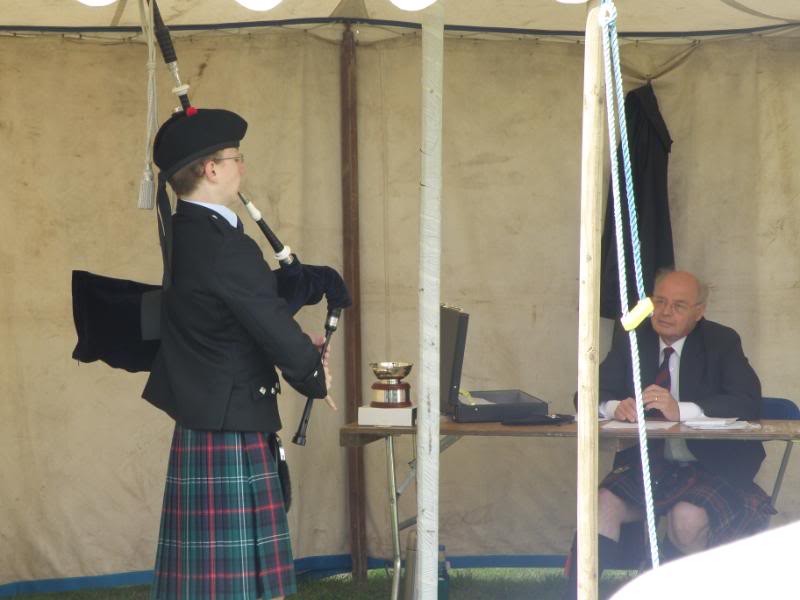
Best viewed in
Internet Explorer
PDF
Back to

Updated
07/10/2013 |
What a Piping Judge Listens For

What do piping judges
listen for?
It may be somewhat foolish for
someone who is not a certified piping judge (and I'm not!) to try to
provide a definitive answer, but the truth of the matter is that the
principle role of the piping judge is to preserve the art-form.
Consequently, judges are listening for "good piping" from a technical
and musical viewpoint.
The judge will listen to the sound
quality of the instrument: both tuning and timbre.
- Are the drones
tuned together and in tune with the chanter?
- Is the chanter
well balanced and in tune?
- How is the tonal
quality - full, or thin, or dull?
The judge will evaluate the
technique and execution.
- Are the
embellishments and notes played accurately and precisely?
- Is blowing steady
throughout or does it degrade with time or during difficult
passages?
- Does the player
have control of his instrument?
- Are there "chokes"
(i.e, the melody cuts out for a note or two) or "squeals" from the
chanter?
- Is the tune
appropriate for the player’s ability and the level of the contest?
The judge listens to the "music".
- Does the player
understand and play this type of tune correctly?
- Does the music
"flow"?
- Is the
interpretation correct?
- Is this an
appropriate "setting" of the tune?
A piping judge is not influenced by
and does not assess the following:
genealogical background, years of experience, connections to other
pipers and individuals, pride, costume, dress (beyond enforcing minimum
standards for the game), deportment, military rank, marching, weaponry,
weather, the actions of others on the field, or anything else that isn't
related to the music and sound of the bagpipe. |

